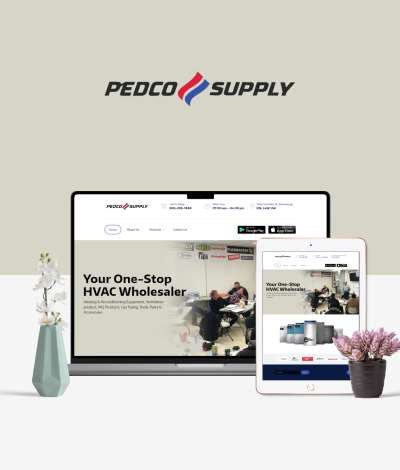Site Wide Factor
This term typically refers to factors that affect your entire website's performance in search engines. It can include things like website speed, mobile-friendliness, and overall user experience. Optimizing site-wide factors is crucial for SEO success because they influence how search engines rank your site.
Preparing a Detailed SEO Strategy:
-
A comprehensive SEO strategy outlines your goals, target audience, keyword research, content strategy, on-page and off-page optimization plans, and metrics for measuring success. It serves as a roadmap for your SEO efforts.
Basic Keyword Research and Identification:
- Keyword research involves identifying relevant keywords and phrases that potential users might use to find your content. Tools like Google Keyword Planner or SEMrush can help you discover valuable keywords to target.
Competitor Analysis and Report Preparation:
-
Analyzing your competitors can provide valuable insights into their SEO strategies and help you identify opportunities and weaknesses in your own approach. You can create a report summarizing your findings, including competitor keywords, backlink sources, and content strategies.
Site Change Implementation:
- Implementing SEO-related changes on your website can involve on-page optimizations (e.g., title tags, meta descriptions, content improvements), technical optimizations (e.g., improving site speed, fixing broken links), and other adjustments to align with SEO best practices.
XML Sitemap:
- An XML sitemap is a file that helps search engines understand the structure of your website and index its pages more efficiently. It should be regularly updated and submitted to search engines through tools like Google Search Console.
Robots.txt:
-
A robots.txt file is used to instruct search engine crawlers on which parts of your website should or should not be crawled and indexed. Properly configuring your robots.txt file is essential to control what content appears in search results.
RSS Feeds:
- While RSS feeds are not directly related to SEO, they can be used to syndicate your content and distribute it to other websites, potentially increasing your reach and backlinks.
Website Traffic Analysis:
- Analyzing your website traffic using tools like Google Analytics or other web analytics platforms helps you understand how users interact with your site. It provides insights into which pages are performing well, where traffic is coming from, and which areas need improvement.
Remember that SEO is an ongoing process, and regular monitoring and adjustments are necessary to maintain and improve your website's search engine rankings. Additionally, staying updated with the latest SEO trends and algorithm changes is crucial for long-term success.
On-page Optimization:
It a crucial aspect of search engine optimization (SEO) that involves optimizing individual web pages to rank higher and earn more relevant traffic in search engines. It focuses on various elements on a webpage to make it more search engine-friendly and user-friendly
Optimizing Title Tags & Meta Tags:
-
Title Tags: Ensure each page has a unique, descriptive, and keyword-rich title tag (usually under 60 characters) that accurately represents the page's content.
-
Meta descriptions: Craft compelling meta descriptions (around 150-160 characters) that entice users to click through from search results.
Header Tag Optimization:
- Use header tags (H1, H2, H3, etc.) to structure your content logically. The H1 tag should contain the primary keyword, and subsequent headers should follow a hierarchy.
Content Optimization:
- Create high-quality, relevant, and engaging content that meets user intent and addresses their questions or needs.
- Incorporate target keywords naturally within the content, but avoid keyword stuffing.
- Ensure proper use of LSI (Latent Semantic Indexing) keywords to provide context.
Optimizing Site Structure & Navigation:
- Ensure a clear and logical site structure that makes it easy for both users and search engines to navigate.
- Use breadcrumb navigation and a clean URL structure.
- Implement an XML sitemap to help search engines crawl and index your pages efficiently.
When seeking website development services, it's important to define your project's specific requirements and goals. Different projects may require different combinations of these services. Additionally, consider factors like scalability, security, and performance when planning your website or web application development.
Anchor Tag Optimization:
- Use descriptive and relevant anchor text for internal and external links. Avoid generic phrases like "click here."
- Ensure that internal links guide users to related content within your website.
Creation of New Optimized Pages:
- Continuously create fresh, valuable content targeting relevant keywords and user intent.
- Maintain consistency in optimizing title tags, meta tags, and content for new pages.
Image Optimization:
-
Optimize images by compressing them to reduce file size without compromising quality.
- Use descriptive alt text for images to improve accessibility and provide context for search engines.
W3C Implementation:
-
Ensure your website's HTML and CSS adhere to W3C (World Wide Web Consortium) standards to enhance compatibility and accessibility across different browsers and devices.
Web Page Content Optimization:
- Regularly update and improve existing content to keep it relevant and valuable.
- Use structured data (schema markup) to provide search engines with additional information about your content.
Website Speed Optimization:
-
Optimize page load times by minimizing HTTP requests, leveraging browser caching, and reducing the file sizes of scripts and images.
- Use a Content Delivery Network (CDN) to distribute content globally and improve loading speed.
- Compress and minify CSS and JavaScript files.
Effective on-page optimization not only improves search engine rankings but also enhances the user experience, which can lead to increased user engagement and conversions on your website. Regularly monitoring and updating these on-page elements are crucial for maintaining and improving your SEO performance.
Off-Page Optimization
involves activities that take place outside your website to improve its visibility and authority in search engine rankings. Here are some common off-page optimization strategies:
Social Media Engagement:
-
Actively engage with your audience on social media platforms like Facebook, Twitter, Instagram, LinkedIn, and others.
- Share valuable content, interact with followers, and encourage social sharing of your content.
Social Bookmarking Submission:
- Submit your website's pages or blog posts to social bookmarking sites like Reddit, Digg, Delicious, and StumbleUpon to increase visibility and traffic.
Blogging:
-
Maintain a blog on your website and publish high-quality, relevant content regularly.
- Guest post on other reputable blogs in your industry to build backlinks and authority.
Business Listing:
-
Create and optimize profiles on business listing platforms like Google My Business, Yelp, and Bing Places for Business.
- Ensure NAP (Name, Address, Phone Number) consistency across all listings.
Niche Directory Submission:
-
- Submit your website to niche-specific directories and industry-related platforms to gain relevant backlinks.
Article Submission:
-
Write and submit articles to authoritative article directories like EzineArticles or industry-specific publications.
- Ensure the content is informative and not overly promotional.
Press Release Submission:
-
Write and distribute press releases about significant company events, product launches, or industry news.
- Use reputable press release distribution services to reach a wider audience
Video Submission:
-
-
Create informative, engaging videos related to your niche or products and upload them to platforms like YouTube and Vimeo.
- Optimize video titles, descriptions, and tags for relevant keywords.
Image Submission:
-
Share visually appealing images related to your business on platforms like Pinterest, Instagram, and Flickr.
- Optimize image filenames and descriptions.
Infographics Submission:
- Create and share infographics on topics relevant to your industry.
- Share them on your website and across social media platforms to attract links and shares.
Business Reviews:
-
Encourage satisfied customers to leave reviews on platforms like Google, Yelp, and industry-specific review sites.
- Respond to reviews, both positive and negative, to demonstrate engagement.
Question and Answer:
-
Participate in Q&A platforms like Quora and Stack Exchange, offering helpful answers to questions related to your expertise.
- Include links to your website when relevant.
Forum Submission:
- Engage in industry-specific forums and communities.
- Share your knowledge, answer questions, and include links to your site when appropriate (avoid spamming).
Remember that off-page optimization efforts should focus on building high-quality, natural backlinks and establishing your website's authority and reputation in your industry or niche. Avoid spammy or unethical practices, as they can harm your site's SEO.
.png)




